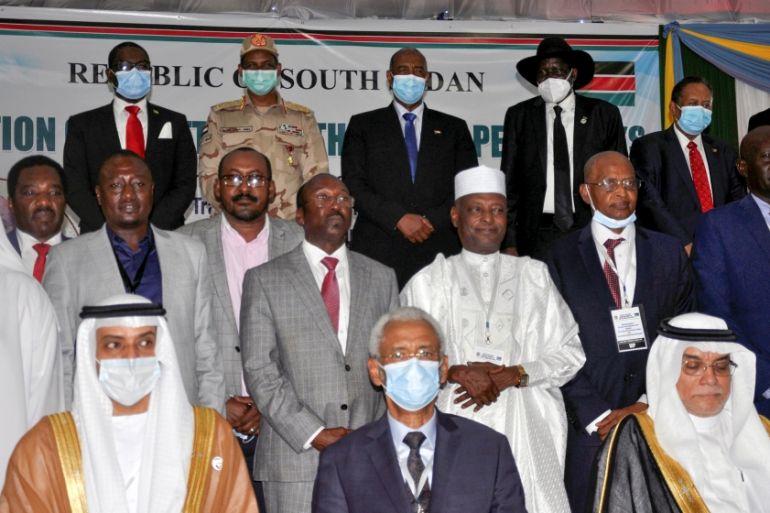Efforts to unify soldiers in South Sudan ‘stuck’: UN envoy
Troops brought together at joint training sites across South Sudan were deserting because of a lack of food, UN says.

The United Nations special envoy to South Sudan on Tuesday said almost no progress has been made in unifying the country’s warring forces under one army, as promised under a hard-fought peace deal.
The pledge to bring government and rebel soldiers under a national banner was a cornerstone of a September 2018 peace agreement that paused five years of bloodshed in which 380,000 people died.
Keep reading
list of 4 itemsUN’s Sigrid Kaag: Is starvation an Israeli weapon in Gaza?
Recognition of Palestinian statehood is not the panacea it’s made out to be
UN peacekeepers close base in preparation to leave DR Congo
But troops brought together at joint training sites across the troubled country were deserting because of a lack of food and other essentials, said UN Mission in South Sudan (UNMISS) special representative David Shearer.
“There has been almost no movement on the critical areas of security sector reform,” Shearer told a news conference in Juba.
“At the moment, the process is stuck. It hasn’t even moved past the first stage, where forces are trained and graduated. Urgent action is needed to move the process forward.”
There was a risk of renewed violence as soldiers disillusioned with the promise of peace return to their villages hungry and frustrated, he said.
“Disillusion is not a good thing – it could lead to frustration and anger and possibly violence,” he said.
“A number of people who are there with a promise of joining the armed forces are now going back to the villages… and could cause further instability on the ground.”
Shearer also criticised South Sudan’s government army for interfering with peacekeeping missions by UN troops tasked with protecting civilians and aid workers in hotspots plagued by armed unrest.
Last month, he said 92 blue helmets were prevented from taking up positions at a new UN base in Lobonok, some 110 kilometres (68 miles) from Juba, by government troops who have been fighting the National Salvation Front (NAS), a holdout rebel group.
The September 2018 agreement, to which NAS is not a signatory, paved the way for the creation of a power-sharing government in Juba, which took control in February 2020, formally ending the war.
But the young country, born in 2011 from an independence struggle with Sudan, is still fragile, racked by armed violence at a local level and crisis levels of food security.